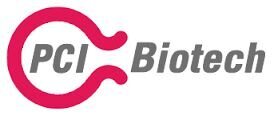Dose escalation in the bile duct cancer study completed with promising early signs of efficacy
Oslo, 22 January 2016 - PCI Biotech (PCIB) reported today that the treatment evaluation of the fourth dose cohort in the Phase I/II study of fimaporfin (Amphinex®) in patients with inoperable bile duct cancer has been completed. The Cohort Review Committee (CRC) of clinical experts and company representatives has recommended that the study progress into Phase II, based on promising early signs of efficacy in the last cohorts.
The CRC has reviewed data from twelve patients that have completed the safety evaluation window and no dose limiting toxicities or other safety concerns have been reported thus far in the study. CRC's recommendation is based on early promising signs of tumour response in the last dose cohorts (both partial and complete responses), combined with experience from earlier clinical studies with fimaporfin.
Coordinating Investigator, Dr. Richard Sturgess at Aintree, said: "Bile duct cancer has a remarkable resistance to chemotherapy and these patients are lacking good alternative treatment options. The combination of fimaporfin and gemcitabine represents a new and innovative treatment concept that could potentially produce significant clinical benefit. The results of the Phase I part of the study are encouraging and I look forward to working with my fellow investigators on the continuation of this study."
The Phase II part of the study will be slightly modified to draw on the experiences gained from Phase I, as well as recommendations from the investigators and PCI Biotech's Scientific Advisory Committee. Phase II will commence when the amended protocol has been approved by regulatory authorities and ethics committees.
Per Walday, CEO of PCI Biotech, said: "This is an important milestone for PCI Biotech. We are confident that fimaporfin (Amphinex®) has potential to provide clinical benefit in bile duct cancer, which is an orphan disease with high need of new local treatment options. Fimaporfin fits well with the treatment need of this disease, both with regard to the standard endoscopic procedures and our technology's ability to enhance the recommended cancer therapy."
About bile duct cancer
Bile duct cancer originates in the bile ducts, which drain bile from the liver into the small intestine. It is a rare cancer (an orphan disease) without approved chemotherapies and the development pipeline is limited. Annual incidence rates of 1-2 cases per 100,000 are seen in the Western world, but rates have been rising worldwide over the past several decades. The majority of cases present as inoperable and there is a high unmet need for improved treatment technologies.
About PCI Biotech
PCI Biotech is a cancer focused biopharmaceutical company headquartered in Norway and listed on the Oslo Stock Exchange (Axess). The company is developing therapeutic products based on its proprietary photochemical internalization (PCI) technology. Originating from world leading research at the Norwegian Radium Hospital, the PCI technology works by inducing triggered endosomal release and may be used to unlock the true potential of a wide array of therapeutic modalities, such as small molecules, vaccines and nucleic acids. The company currently has a bile duct cancer program in Phase I/II clinical development. Bile duct cancer is an orphan indication without any approved medicinal products and a high medical need for better local treatments. It is an indication well suited for PCI treatment, with easy light access for intraluminal surface illumination through routine endoscopic methods and an active generic drug (gemcitabine) significantly enhanced by PCI. The company is also developing PCI as a CTL (Cytotoxic T Lymphocyte) induction technology for therapeutic and prophylactic vaccination. It has been demonstrated both in vivo and ex vivo that PCI significantly increases the number of activated antigen-specific CTLs by enhancing the MHC I antigen presentation of antigen presenting cells. When applied in the emerging field of cancer immunotherapy, PCI can be used to enhance the important cytotoxic effect of therapeutic cancer vaccines. The PCI technology is also very well suited for intracellular delivery of nucleic acids, such as RNA therapeutics. By releasing nucleic acid compounds from endosomes where they are trapped following administration, PCI addresses one of the major bottlenecks facing this emerging and exciting field. PCI Biotech follows a strategy to create value by improving the effect both of existing cancer drugs and by realizing the large potential in new therapeutics, including therapeutic vaccines.
Contact information:
PCI Biotech Holding ASA, Ullernchausséen 64, N-0379 Oslo, Norway.www.pcibiotech.com
Per Walday, CEO,pw@pcibiotech.no,Mobile: +47 917 93 429.
This information is subject to the disclosure requirements pursuant to section 5-12 of the Norwegian Securities Trading Act.
